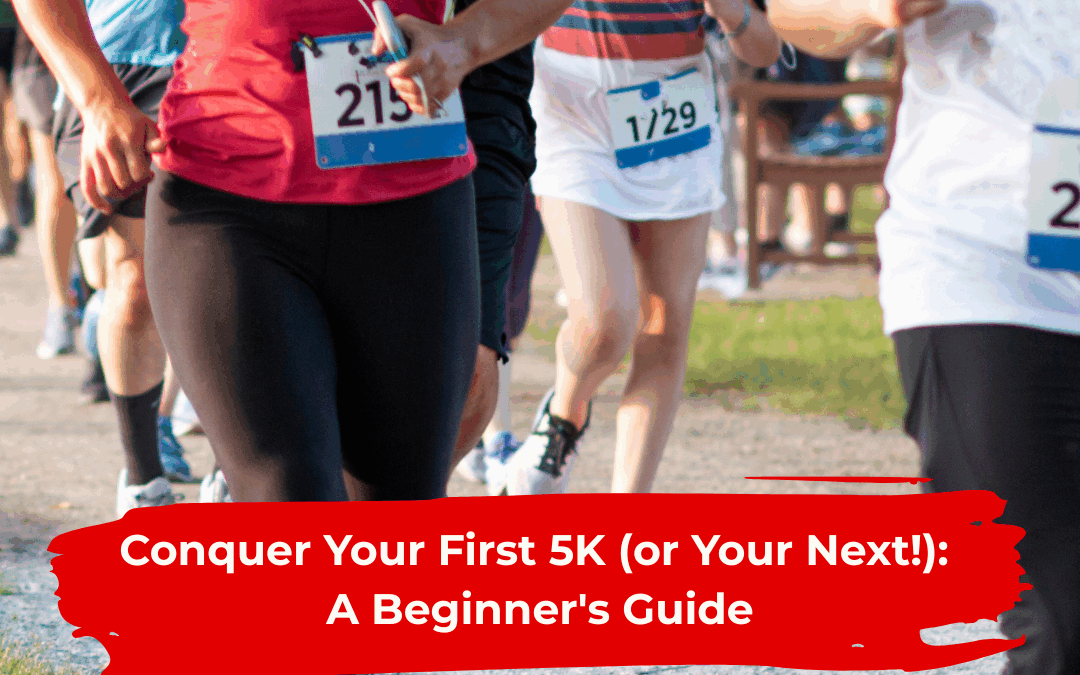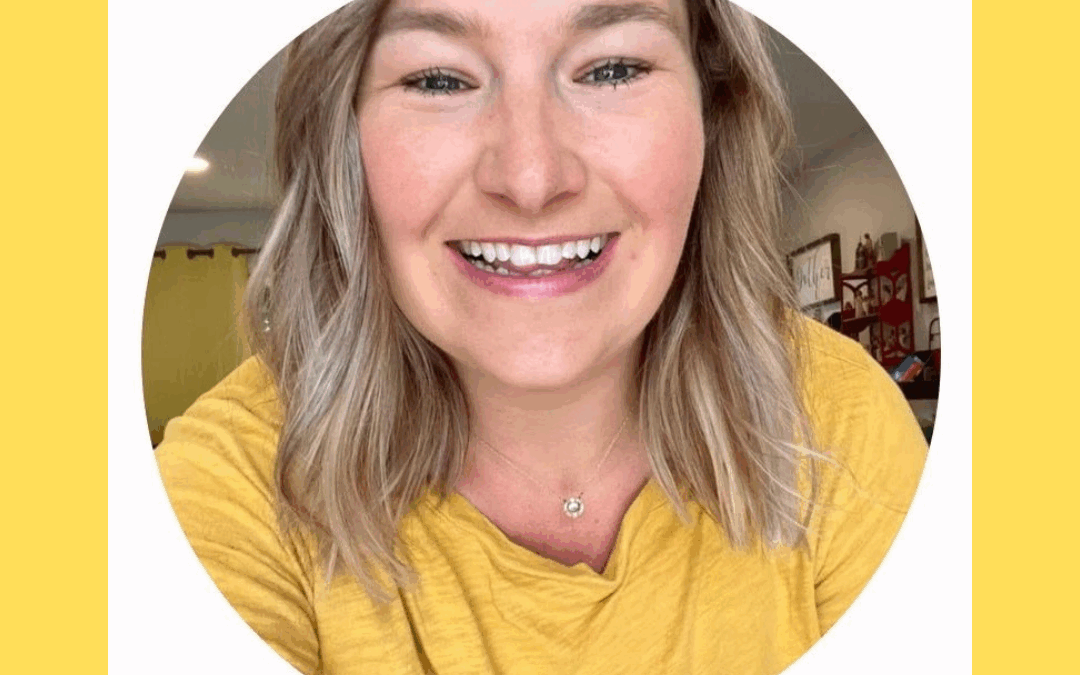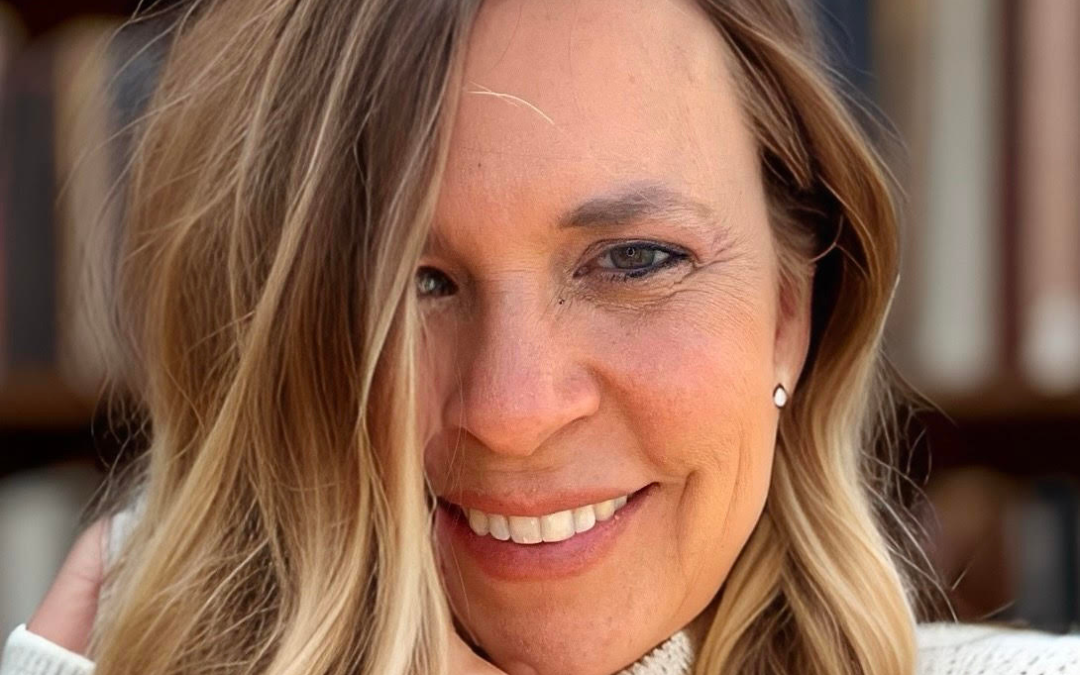
by Guest | Jun 16, 2025 | Being Well, Eat Well, Featured, Uncategorized
Written by: Lewis Martin, MS, RD, LD
Our bones do a lot for us—they help us stand, move, and protect important parts inside our bodies. To keep our bones strong and healthy, we need the right kinds of food and nutrients. One of the best food groups for bones is dairy. Dairy foods like milk, cheese, and yogurt are packed with beneficial nutrients that help build and protect bones throughout life: from childhood through old age.
Let’s take a look at some of the ways dairy helps support our bones and bodies at all life stages.
1. Builds Peak Bone Mass in Childhood and Teen Years
Kids and teens grow quickly, and that means their bones are growing fast too! During this time, our bodies need more calcium than usual to build strong and healthy bones to achieve peak bone mass, or the highest amount of bone density achieved by an individual in their lifetime, which typically peaks during young adulthood.
- Dairy foods are the best source of calcium, which is the main building block of bones.
- One glass of milk has about 300 milligrams of calcium—that’s a big help toward the daily goal of about 1,000-1,200 milligrams depending on your age and gender.
- Getting enough calcium during childhood helps bones grow stronger and can help prevent broken bones.
2. Helps Bones Stay Strong in Adulthood
Even after we stop growing, our bones still need care through nutrition and physical activity. As adults, we need calcium and vitamin D to keep bones strong and to stop them from getting weaker over time.
- Dairy foods often contain vitamin D, which provides a number of benefits, including helping our body use calcium to protect our bones.
- Eating dairy as part of a balanced diet can help slow down bone loss as we get older.
- Along with strength & resistance-based physical activity, dairy can help lessen the likelihood of suffering from bone injuries.
3. Protects Bones During Aging
As people get older, bones can become thin and brittle—a condition called osteoporosis. This makes it easier to get bone fractures, even from minor falls or accidents.
- Regularly eating dairy can help reduce the risk of osteoporosis.
- The calcium and protein in dairy help older adults keep their bones and muscles strong.
- This support helps seniors stay independent and feel better overall.
4. Offers a Simple, Tasty Way to Get Bone-Healthy Nutrients
Dairy isn’t just good for you—it also tastes great and is easy to add to meals, especially when combined with other healthy food groups like fruits, vegetables, and whole grains.
- Yogurt with fruit makes a perfect breakfast or snack.
- Cheese and whole wheat crackers are a fun and easy lunchbox item.
- A glass of milk with dinner adds calcium, vitamin D, and protein while also providing a good source of hydration.
There are also lactose-free options for people who have trouble digesting regular milk, so everyone can get the benefits!
From toddlers to grandparents, everyone needs strong bones. Dairy foods are a simple and delicious way to keep bones healthy for life. Whether it’s a glass of milk, a bowl of yogurt, or a slice of cheese, adding dairy to your day can help you build and protect your bones every step of the way.
Want to learn more? Read on at: https://www.usdairy.com/research-resources/science-summary-dairy-and-peak-bone-mass

by Guest | Jun 11, 2025 | Being Well, Featured, Uncategorized
Written by: Amy McVeety
Spring is here, and summer is just around the corner, bringing with it fun activities, trips, and more. It also brings warmer, drier weather, creating conditions that are higher risk for wildfire. While we aren’t in peak fire season yet, it’s important to prepare early, so that you can enjoy summer activities with the peace of mind knowing you’re ready for whatever happens.
Sign up for Alerts & Know the Evacuation Levels
If you haven’t already, make sure you’re signed up for emergency alerts. This makes sure you get notified of any emergencies, so you can be ready to respond. You can sign up for local alerts by visiting https://www.tillamookcounty.gov/emergency-management/page/test.
Oregon uses a three-level stoplight system for evacuations: Level 1, Be Ready; Level 2, Be Set; and Level 3, Go Now. Monitor your alerts, local news sources, and any communications from officials during a wildfire event to know what level you’re in, and if in doubt, consider evacuating.
Evacuation and Family Plan
Do you know where you would go if you needed to evacuate? What if your main route was blocked or unsafe? It’s important to plan ahead, because during an emergency, you may not have time to find an alternative route. Talk to your family to decide what route(s) you’ll take, where you’ll meet, and how you’ll communicate if you’re separated during an emergency. It’s also important to make plans for different locations, like home, work, school, and anywhere else you may spend time. Wildfires can happen at any time, and it may not be while you’re all together at home.
Go Bags/Supplies
Having supplies ready to go can make evacuation faster and smoother, especially in complicated situations, such as having kids, pets, or medical needs. Every household should try to have a 3-day kit ready for each member of the family, including water, food, medication, personal documents, and any other individual needs like comfort items or toys. For more information on what to include in a go-bag/emergency kit, visit https://www.ready.gov/kit.
Defensible Space
While evacuation and personal preparedness can help keep you and your family safe during a wildfire, you can also take steps to protect your property and home. Having clear defensible space, or the area around your home or business and nearby grass, trees, shrubs, or wildland, is one of the most important ways you can reduce the risk of property loss in a fire.
The primary goal of defensible space is to remove flammable materials from around your house or other structures. This means cleaning gutters, removing dead leaves or mulch, trimming back bushes and trees (ideally at least a 5 foot gap), and storing firewood or other flammable building materials at least 30 feet away from structures. You can use this checklist from the state Fire Marshal to assess your defensible space: https://www.oregon.gov/osfm/Documents/OSFMDefensibleSpaceAssessmentTool.pdf
Preparing for an emergency like wildfire can feel overwhelming, but breaking it down into smaller steps can make it easy and even fun. Consider making preparedness a family activity, such as taking kids shopping for go-bag supplies, planning out and practicing evacuation and communication plans, and working together to create defensible space. This can help build confidence, relationships, and even be good exercise!
To learn more about preparing for wildfires, visit https://wildfire.oregon.gov/Pages/prepare.aspx.

by Guest | May 28, 2025 | Being Well, Featured, Move Well, Uncategorized
Written by: Molly Carlson
So, you’ve signed up for a 5k—or you’re thinking about it—and now you’re wondering, “How do I train for this?” With the Tillamook YMCA Milk Run coming up at the end of the month (offering a 2-mile walk/run, 5k walk/run, or 10k run), it’s safe to say you’re not alone.
Maybe a friend talked you into it, your co-workers signed you up, or—like me—a family member asked you to do it with them. Whatever the case, it’s a good idea to start training now so you can feel confident and prepared on race day.
A 5k is a great distance for a first race. It’s long enough to feel like a meaningful challenge, but short enough that the risk of injury, overtraining, or not finishing is relatively low. Remember: it’s completely acceptable to walk part or even all of the race. Participating in and completing a 5k is a win in itself.
Whether your goal is simply to finish or to set a new personal best, following a training plan can help you get there.
As a personal trainer and outdoor enthusiast, I stay pretty active—but I don’t usually run as part of my regular training. When I sign up for a 5k, I give myself at least 6 weeks to prepare, gradually increasing my mileage to get race-ready. If you’re not currently active, you may want to extend your training time to 8–10 weeks (or more) so you can build up gradually and avoid injury.
Tips for Training for a 5k:
Start slowly:
It’s okay to walk or jog rather than run. Keep your runs shorter in the beginning and gradually work your way up. Doing too much, too fast can lead to burnout or injury. Most training runs should be done at a moderate pace—think: “conversational pace,” where you can speak in full sentences. If you’re breathless, slow down or walk.
Rest is important:
Your body needs time to recover as you increase your mileage. Incorporate rest days into your plan, and try cross-training activities like swimming, biking, or weightlifting to support your running. Taking at least one full day off from training each week is a smart move.
Listen to your body:
Staying hydrated, fueling with nutrient-rich foods, and paying attention to any aches or pains are all key to staying healthy and injury-free.
Warm-ups and cool-downs are non-negotiable:
Every session should start with a 5-minute warm-up and end with a 5-minute cool-down. A brisk walk and a few mobility drills are a great place to start and finish.
Try This: The Walk/Run Method
One tried-and-true method for 5k preparation is walk/run interval training—alternating between walking and running. Overtime, you’ll increase both your running intervals and overall distance. As the weeks progress, the running segments get longer, while the walking breaks get shorter.
Aim to run three times per week: two shorter runs and one longer run, staying within the range provided each week. Add two cross-training days (lifting, swimming or biking) and at least one full rest day. During your final training week, reduce your runs to 1–2 days to conserve energy for race day.
Sample 8-Week Training Plan:
Week 1: 1 min run / 1–2 min walk — 1 mile
Week 2: 2–3 min run / 2 min walk — 1.25–1.5 miles
Week 3: 3–5 min run / 2–4 min walk — 1.5–2 miles
Week 4: 3–8 min run / 1–4 min walk — 2 miles
Week 5: 5–10 min run / 1–5 min walk — 2–2.5 miles
Week 6: 7–10 min run / 1–4 min walk — 2.5–3 miles
Week 7: 9–14 min run / 1–2 min walk (or as needed) — 2.5–3 miles
Week 8: 10–15 min run / 1–2 min walk — 2–2.5 miles (taper before race day)
If you are already pretty active, you can probably jump in at week 3 of this program rather than starting from the beginning. Any plan should be adjusted to meet you where you are in your fitness journey. Your “run” intervals might be a brisk walk or a light jog—and that’s totally fine. The pace doesn’t matter.
What does matter is showing up, having fun, improving your health, and doing something that makes you feel alive. You’ve got this!
See you on the course!

by Guest | May 23, 2025 | Being Well, Featured, Uncategorized, Work Well
By Cami Aufdermauer
May is Mental Health Awareness Month, and it’s a powerful reminder to check in not only on the people around us but on ourselves. Mental health isn’t just about crisis moments or diagnoses. It’s about wellness, a daily practice of showing up for your mind, your emotions, and your purpose.
For me, one of the most important things I’ve learned is this: mental health is rooted in connection. The more connected we are to ourselves, to others, and to something greater, the stronger and more resilient we become.
Connection to self means knowing yourself well enough to recognize what you need. Sometimes it’s reaching out for support. Sometimes it’s taking a walk, unplugging for a bit, or simply giving yourself permission to rest. Living with a growth mindset means asking, “What is this moment trying to teach me?” instead of, “What’s wrong with me?” It’s about being kind and curious with your inner world.
Connection to others is equally vital. We’re not meant to do life alone. Who’s in your circle? Who lifts you up, checks in on you, challenges you to grow? For me, I’ve found deep support in my church community and in my roles as a child advocate and hospice chaplain. These spaces remind me that I’m not the only one carrying hard things, and that compassion and shared experience can be healing.
And finally, connection to purpose is what keeps me going. I believe there’s a greater plan at work in my life. Knowing I’m part of something bigger helps me step outside of my own anxiety or stress and re-center on what really matters. Purpose gives me the courage to show up, even on the hard days, because I know my presence and my voice matter.
If you’re feeling disconnected or overwhelmed, you’re not alone. But I encourage you to pause and ask: How connected am I to myself, to my people, to my purpose?
Mental health isn’t just an individual journey. It’s a shared one. The more we choose connection, the stronger and more whole we become.
You don’t have to have it all together. You just have to stay connected.

by Guest | May 7, 2025 | Being Well, Featured, Uncategorized
Written by: Denise Donohue
Ever get that awful pit in your stomach? Or feel your heart start to race, sweat bead up on your forehead, or a wave of nausea hit out of nowhere? Yep—welcome to anxiety.
But here’s the thing: these feelings are actually “normal”. Anxiety is our brain’s built-in alarm system. It’s designed to protect us from danger, whether it’s real or perceived. Back in caveman days, this alarm system kept our ancestors alive. Imagine they’re out hunting when a sabertooth tiger appears. If their brain didn’t sound the alarm—triggering anxiety to prepare them to run or fight—they might have ended up as lunch.
The tricky part is… our modern brain doesn’t know the difference between a life-threatening tiger and a traffic jam, a stressful email, or a heated conversation with someone we love. To your brain, it all feels like danger.
When anxiety hits, your brain kicks into what we call “fight, flight, or freeze” mode—or as I like to say, ” The F3 Mode”. And not only do you feel physical symptoms, but you may also notice changes in your behavior. You might:
– Isolate yourself
– Shut down emotionally (freeze)
– Lash out or become irritable
– Reach for something comforting—like food, alcohol, or a distraction
The good news? You’re not broken. You’re human. And anxiety, while uncomfortable, is something we can understand and learn to manage with the right tools.
So What Can You Do When Anxiety Hits?
When that overwhelming feeling creeps in—your heart racing, your palms sweating, your brain shouting “DANGER!” even though you’re just checking your email—it’s time to gently take the wheel back from your inner sabertooth tiger alarm system.
Here are some practical steps you can take the moment anxiety starts to take over:
1. Pause and Name It
Start by saying to yourself, “Okay, I’m feeling anxious right now.” Just naming it can help. You’re not weird, broken, or weak—you’re experiencing a totally normal response. Anxiety doesn’t like to be ignored, but it also doesn’t love being calmly called out either. It takes away some of its power.
2. Breathe Like a Pro
Seriously—two slow, deep belly breaths. Not the kind of shallow chest breaths you do when you’re pretending everything’s fine. We’re talking big, slow inhales that make your belly rise, followed by long, slow exhales that say to your brain, “We are not in actual danger right now.”
3. Catch the Thought – and Flip It
Ask yourself: “What thought just zipped through my head?”
Was it something like, “I’m totally going to mess this up”?
Flip the script:
Try, “I’m doing my best, and I can do hard things”
That tiny shift can change how you feel and what you do next.
4. Do the Opposite Action
If your anxiety wants you to hide in bed all day…put on real pants (yes, actual pants) and step outside—even if it’s just for five minutes. If your brain is telling you to avoid that awkward conversation? Write down what you would say, even if you’re not ready to say it yet. Doing the opposite of what anxiety demands gently reminds your brain that you’re the boss.
5. Be Kind to Yourself (Really, You Deserve It)
Your anxious brain is working overtime trying to protect you. So instead of judging yourself, try saying, “This is hard, but I’m handling it.” That little boost of self-compassion is one of the most powerful tools you have.
Final Thoughts: You Are Not Your Anxiety!!!
Anxiety might be loud, messy, and dramatic (kind of like that one friend who always thinks everything is a catastrophe). But it doesn’t get to run the show. You’ve got tools. You’ve got awareness. And now—you’ve got a plan.
The more you practice, the easier it becomes to pause, breathe, reframe your thoughts, and take small steps toward calm. You won’t always get it perfect, but the goal isn’t perfection—it’s progress.
Need a little extra support?
If anxiety is something you’re ready to tackle with more guidance, you’re not alone—and you don’t have to figure it out on your own. Denise Donohue is a life coach who specializes in working with teens and women. Learn more about Denise at www.optimallifecoachingforteens.com

by Guest | Apr 23, 2025 | Being Well, Featured, Uncategorized
In our fast-paced world, it’s easy to feel overwhelmed and disconnected. The constant influx of information and demands on our time can leave us feeling stressed and reactive. Cultivating mindfulness, the practice of paying attention to the present moment without judgment, can be a powerful antidote. Thankfully, numerous free apps are now available to guide us on this journey towards greater awareness and inner peace.
Several excellent free apps offer a fantastic starting point for anyone curious about mindfulness. Insight Timer boasts a vast library of guided meditations, talks, and music tracks led by teachers from around the globe. Its community aspect and diverse content make it a rich resource for both beginners and experienced practitioners.
Smiling Mind, offers a range of free programs designed for various age groups, including adults, children, and educators. Their meditations focus on stress reduction, sleep improvement, and overall mental well-being. Finally, Aura provides personalized mindfulness exercises, sleep stories, and music based on your mood. Its free version offers a daily three-minute meditation and access to a basic library of content.
While these apps offer valuable tools and guidance, the foundation of mindfulness often comes down to something incredibly simple: breathing. In the midst of a busy day, taking even a few moments to consciously focus on your breath can make a significant difference.
Think of it as a mini-reset button for your nervous system. When we feel stressed, our breathing often becomes shallow and rapid. Consciously slowing down our breath signals to our body that it’s safe to relax. Even a minute or two of deep, intentional breathing can help to calm racing thoughts, reduce muscle tension, and bring us back to the present moment.
You don’t need an app to practice mindful breathing. You can do it anywhere, anytime. Simply find a comfortable position, close your eyes if you wish, and bring your attention to the sensation of your breath as it enters and leaves your body. Integrating short breathing breaks throughout your day can be surprisingly impactful. Try taking a few deep breaths before starting a challenging task, during a moment of frustration, or simply as a pause between activities. These small moments of conscious breathing can accumulate, fostering a greater sense of calm and presence throughout your day.
The journey to mindfulness doesn’t require hours of meditation. By leveraging the accessibility of free mindfulness apps and prioritizing even a few moments of conscious breathing, we can cultivate greater awareness, reduce stress, and navigate our lives with more ease and intention. So, take a deep breath, explore these resources, and discover the power of finding calm in your everyday life.






